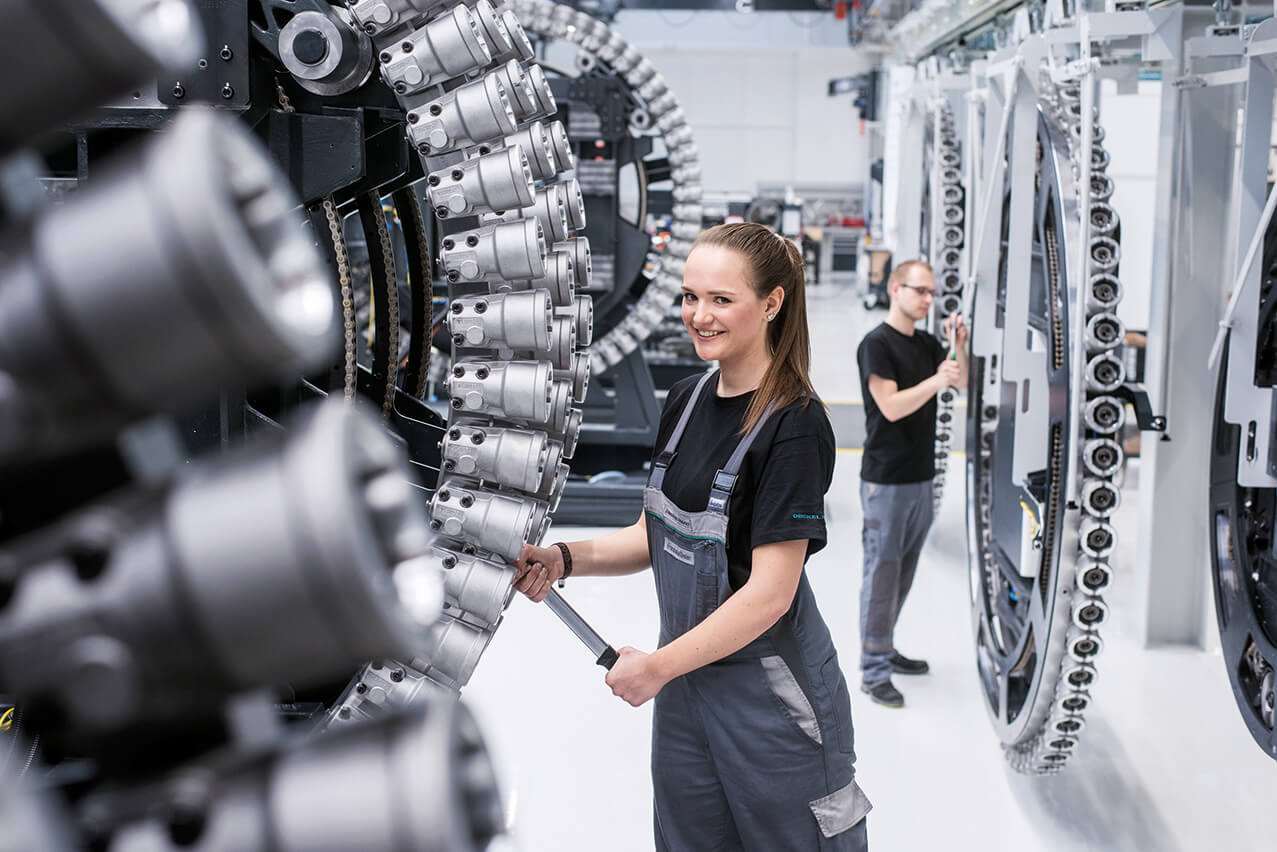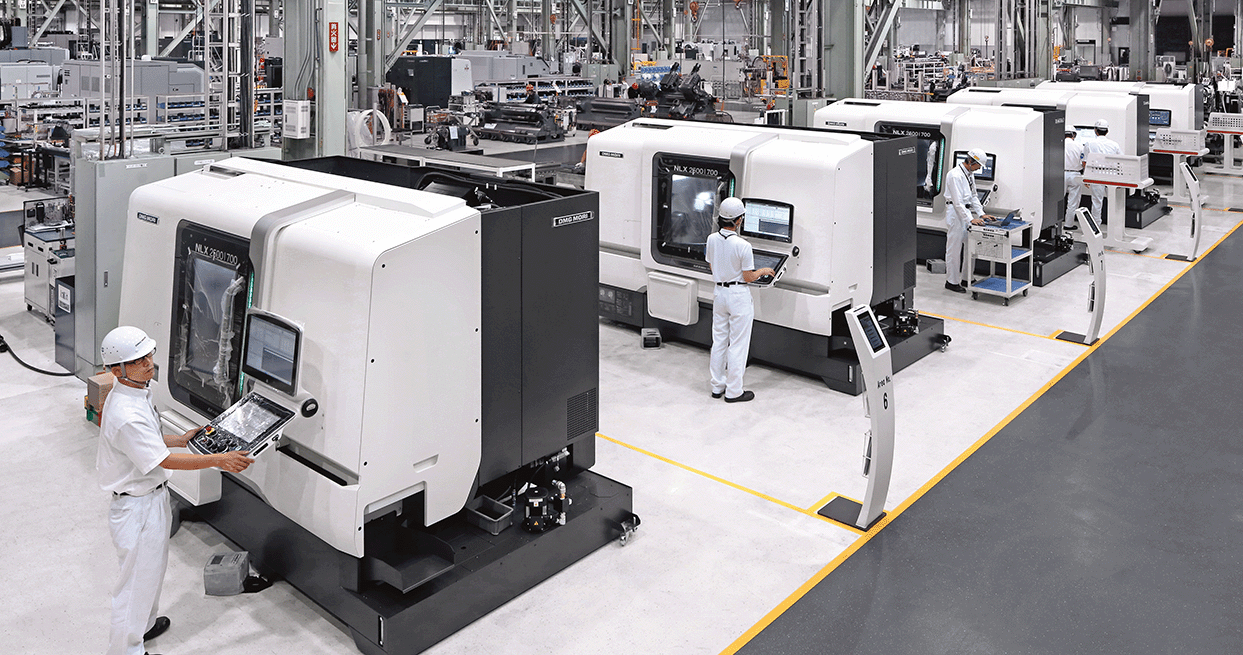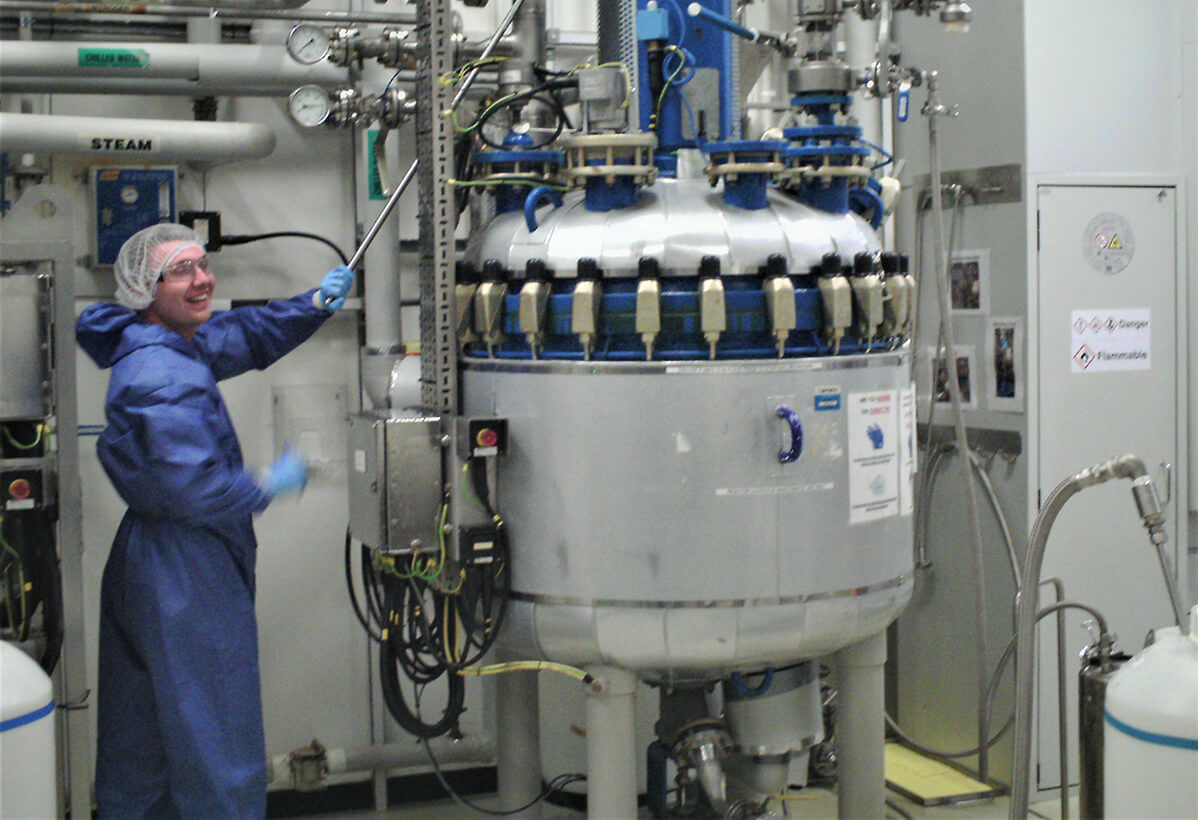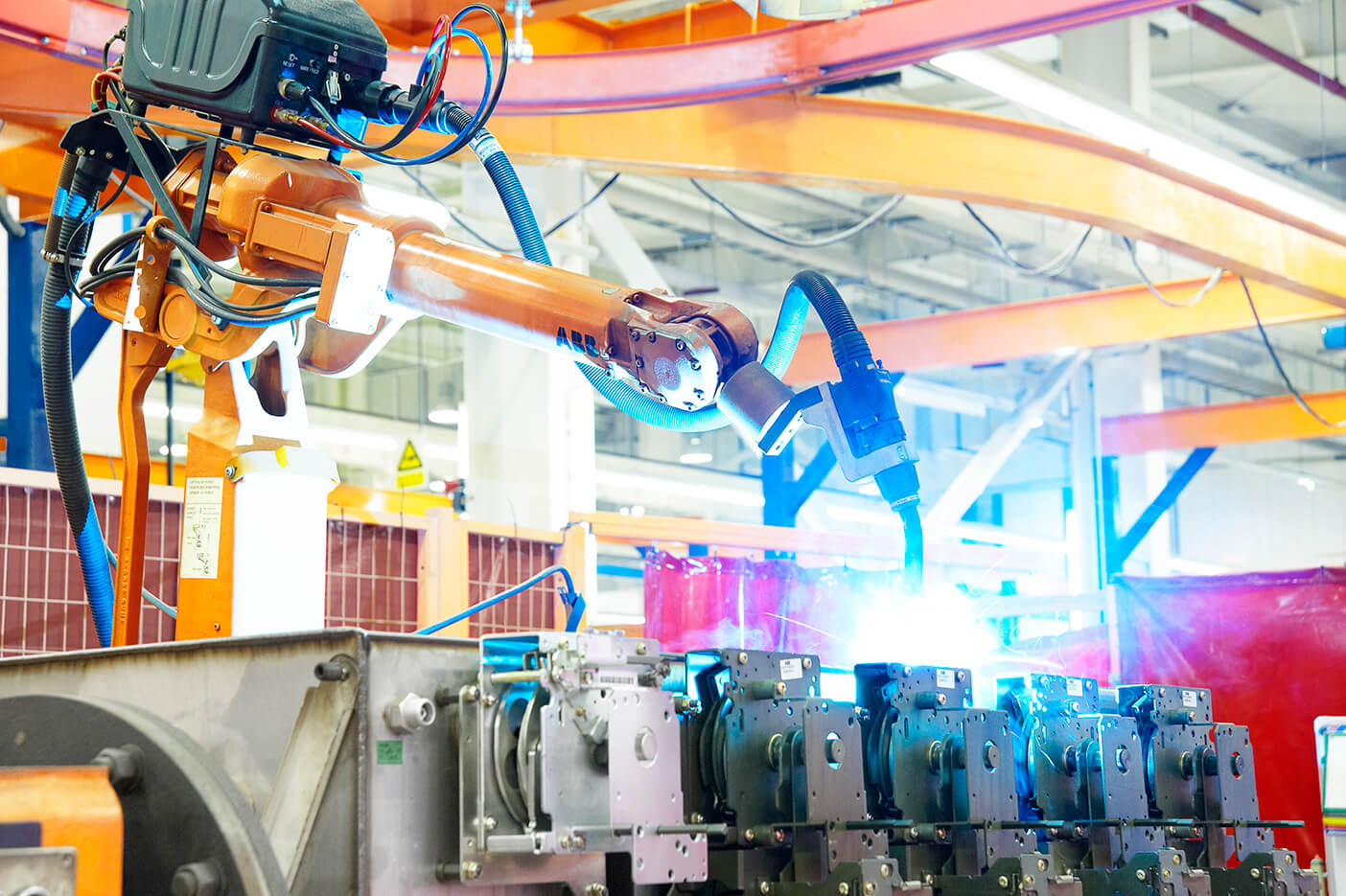Above: Engineering business AESSEAL has started an effort to reduce significantly the environmental impact of its operations, including a project to cut energy used by its machine tools.
A “green-tech” leader and an electrical equipment pioneer have teamed up to
champion a potentially ground-breaking energy-saving fix for manufacturing
machines, highlighting how small changes in industry can help to combat global
warming.
The innovation could be relevant for 10,000 UK metal-cutting machines that
make items from cars to kitchen equipment, lowering their power consumption
and so reducing carbon dioxide emissions from fossil-fuel burning power
stations.
Josh Dugdale, a technical expert at the
Manufacturing Technologies Association,
the main UK trade body for the machine tool industry, welcomed
the energy saving idea, especially in light of the “huge pressure on the
manufacturing industry to show greater green credentials and be more
sustainable.” Another leading industry figure said implementing the
improvement would be a “no brainer” for many machinery users.
The new technology’s main promoter is Chris Rea, who runs a big South
Yorkshire-based engineering group and a strong advocate of greater
environmental awareness in industry. Rea’s partner is Alex Mardapittas,
managing director of energy equipment business Powerstar, which makes
specialised electrical devices called amorphous core transformers (ACTs) that
are central to the development.
Rea is managing director and owner of AESSEAL, one of the world's biggest
makers of mechanical seals used in installations such as chemical works. He
says the transformer innovation is just one of many ideas that if widely
adopted in industry could help alleviate global warming by reducing carbon
emissions. Rea has started a website,
Betterworld Solutions, to
encourage new thinking on sustainability across industry.
“Investment policy to prevent global warming…is essential not just to
businesses but to species survival,” says Rea, who started his business in
1981. AESSEAL employs some 1,700 people, 40 per cent of them in the UK, and
had sales in 2021 of £194m. It has a large apprentice programme and is a
sponsor of Made Here Now.
Transformers are needed to change the voltages of many types of machine tools
– the workhorses of manufacturing – used in UK factories. The need for this
adaptation applies particularly to machines made in Asia, where local
standards for power supply differ from those in Britain. Around half of the
roughly 2,000 machine tools imported into the UK each year come from Asia,
with Japan and China supplying the bulk, followed by South Korea and Taiwan.
Up to now most distributors and users have tackled the voltage issue by
installing a relatively cheap conventional transformer based on non-amorphous,
crystalline steel cores.
Powerstar
says it is the only UK company making ACTs – which can reduce the
energy losses experienced with conventional transformers by some 90 per cent
but which are harder to make and cost more. Mardapittas says: “I think the
machine tool industry will be receptive to what we are doing, so I anticipate
getting a good stream of orders.”
 The big machine tool maker DMG Mori has thrown its weight behind ideas to add a novel energy-saving accessory to factory machines.
The big machine tool maker DMG Mori has thrown its weight behind ideas to add a novel energy-saving accessory to factory machines.
Japan-based DMG Mori, one of the world's biggest machine tool producers, is a
strong supporter of the innovation. Referring to Rea’s espousal of Powerstar’s
devices, Steve Finn, managing director of DMG Mori’s UK operations, says:
“Chris has opened our eyes to the advantages of using this sort of transformer
in the power systems for those machine tools that require voltage adaptation.
He is 100 per cent right to point out the energy saving benefits …using this
technology could lead to significant reductions in CO2 emissions.”
DMG Mori says that from now on all its machine tools sold in Britain that need
transformers will be fitted with the Powerstar products, as opposed to the
old-style systems. “We expect a lot of our customers will be enthusiastic
about using these types of transformers,” Finn says. In a typical year, DMG
Mori could sell 100 machines to UK customers fitted with ACTs.
 Highly adaptable - and expensive - metal cutting machines are the work horses of industry and big users of electricity.
Highly adaptable - and expensive - metal cutting machines are the work horses of industry and big users of electricity.
Martin Doyle, managing director of Engineering Technology Group, a large
machinery distributor in Warwickshire that sells mainly Asian equipment, says
that while ACTs are at least twice the price of conventional ones, “the energy
savings are such that a company can get its money back in about two years, and
after this save substantial sums.” As a result, says Doyle, introducing the
technology “is a no-brainer”.
Doyle’s company has agreed to sell Powerstar’s ACTs as accessories to all the
machine tools it sells in the UK where voltage adaptation is required. It will
also try to interest customers in Powerstar ACTs as substitutes for existing
ferrite-core devices.
In recent years, ETG – which does not handle any DMG Mori hardware – has sold
about 75 machine tools a year in the UK that need a transformer. This implies
that Powerstar might expect to gain 70-80 new customers annually through the
connection with Doyle.
Khalil Zouari, European sales engineering manager at Nakamura-Tome Precision
Industry, a Japanese machine maker which uses ETG as a distributor, says two
of Nakamura’s UK customers have switched to ACTs with “good results”.
One big machine tool business that has however decided not to back ACTs is
Yamazaki Mazak. The Japanese company has instead decided that when selling
Japanese-made machines in the UK, it will “design out” the need for
transformers by making the necessary electrical adaptations in its Japanese
factories.
 A new website aims to encourage businesses in sectors from pharmaceuticals to pumps to publicise their own efforts to reduce carbon emissions.
A new website aims to encourage businesses in sectors from pharmaceuticals to pumps to publicise their own efforts to reduce carbon emissions.
Engineering for a Betterworld
Chis Rea – managing director of AESSEAL – says he found out about the energy
saving potential of an innovative transformer only by accident. This led him
to launch a website, Betterworld Solutions, to promote environmental
improvements in sectors from pumps to food processing plants.
The AESSEAL boss wants other businesses to join his efforts by publicising
their own ideas on his platform and encouraging others to use them. “There
has to be a collective effort across all industries to embed sustainability
in the company ethos,” Rea says.
A chance conversation with a former MP led Rea to discover that Powerstar
was the source of a technology that could save him and other machine tool
users substantial sums, as well as doing something positive to address
global warming. Powerstar is based in Sheffield, close to Rotherham where
Rea’s own business is headquartered.
Powerstar makes electrical devices called amorphous core transformers (ACTs)
that can help achieve big potential reductions in energy use in large
sections of the UK machine tool industry. Betterworld Solutions, says Rea,
followed on from his awakening to the potential of ACTs, as he realised
there had to be other green-tech innovations that he and others were now
aware of. “If I did not know [about Powerstar], others probably would not
either. I wanted [related] opportunities to be brought to [people’s]
attention.”
While in the past AESSEAL has used conventional transformers for voltage
standardisation, Rea says from now on all its new machines that need
adaptations will use Powerstar’s ACTs. It has also agreed to buy 40
Powerstar ACTs for some £180,000. These are being gradually installed at its
Rotherham plant to replace the existing systems, many of these fitted to DMG
Mori equipment.
 Engineering boss Chris Rea believes virtually every area of manufacturing should accelerate moves to make their activities more environmentally sustainable.
Engineering boss Chris Rea believes virtually every area of manufacturing should accelerate moves to make their activities more environmentally sustainable.
Due to the cost disparity between the different types of transformer, it is
easy to understand why many machine tool users have not thought about
substitutes for existing devices. A typical conventional transformer for a
machine tool costs around £3,000, a small fraction of the price of a modern
machine tool which can cost £300,000 or more. An ACT, however, can be twice
as expensive.
In line with his belief in the need for environmental improvements in
industry, Rea’s company prioritises “sustainability projects” over any other
capital investments with a similar likely return. In putting this concept
into practice, AESSEAL announced in 2022 that it had achieved “net zero”
emissions ahead of schedule across all its activities – adding no more
greenhouse gases to the atmosphere than it is taking out through offset
projects such as tree planting. The company had
previously
announced a £29m plan to achieve “net zero” by 2029.
Betterworld Solutions features examples of pioneering ways in which energy
and carbon emissions can be reduced. The handful of examples cover
installations involving for instance the big pharmaceuticals group
Glaxo Smith Kline
, Japanese pump maker
Torishima
and the UK engineering company
Pennine Pneumatic Services
, as well as other instances where AESSEAL has been involved. However Rea, a pugnacious and determined operator, hopes
that over time he will be able to persuade more businesses to join the
effort.
